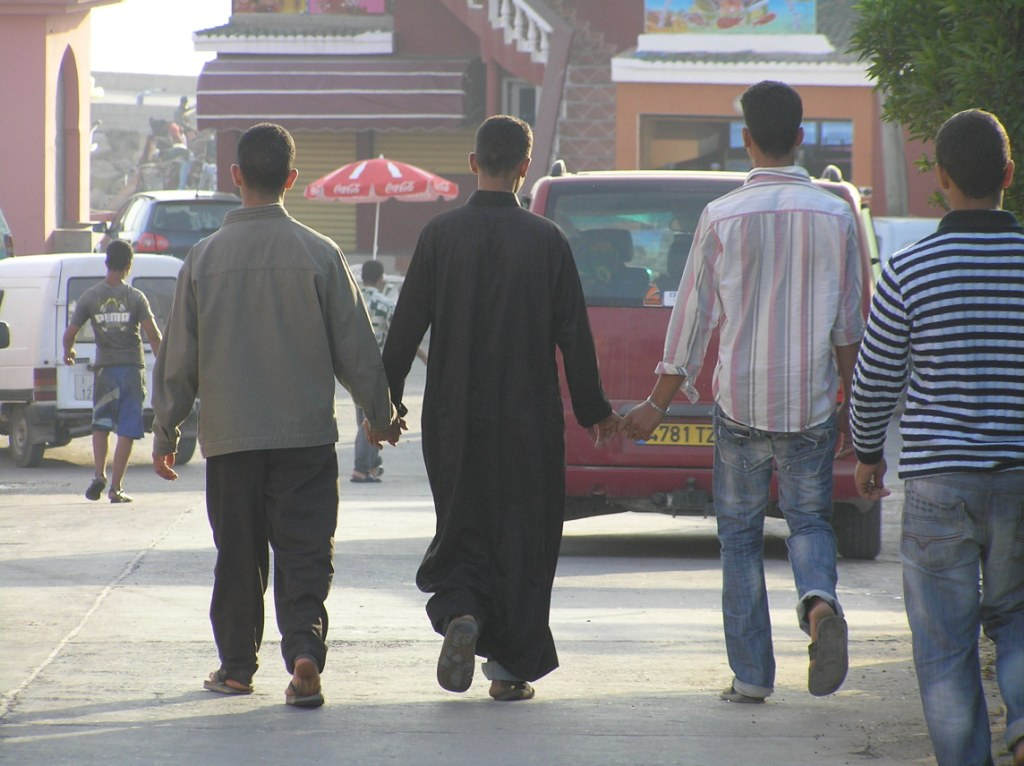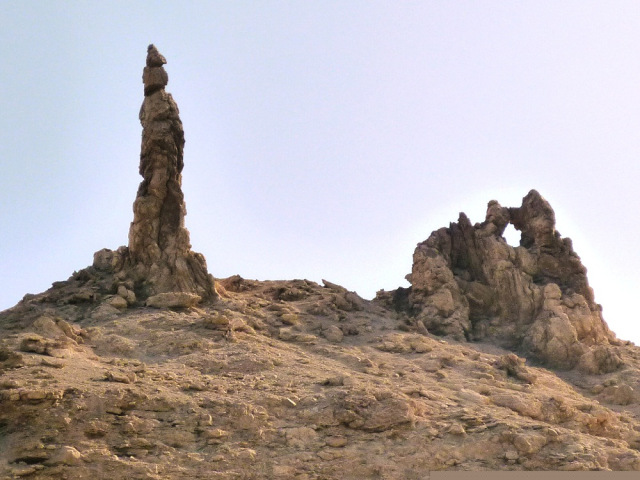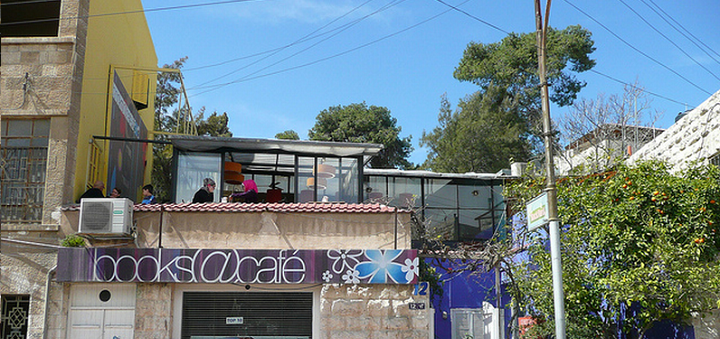If you ever happen to find yourself along one of Amman’s booming inner-city streets, take a moment to look past its electric urban vibe, just long enough to notice the cultural exchange of affection between the region’s adolescent men. You may spot two shabaab (young guys) walking side by side, arms intertwined. You may even notice another pair, walking proudly with their hands interlocked. These seemingly flirtatious gestures, alongside the infamous triple-kiss-on-the-cheek salute, should not be mistaken as sexual connotations, but rather exemplify culturally affectionate and heterosexual friendships among members of its Middle Eastern patriarch.
To the Western eye, behaviors such as hand-holding and cheek-kissing often prelude to homosexual innuendos. Based on predetermined concepts of homosexuality, being touchy-feely with those of the same sex is automatically considered “gay.” Afterall, when’s the last time you looked at a couple of guys holding hands, without assuming their sexual orientation? You’d probably think to yourself, “Oh, they must be dating,” or “Oh, they’re gay.” On the contrary, if two men were seen holding hands or exchanging kisses on the cheek across the streets of Amman, the rest of the community would think nothing more than to admire their strong friendship.
Historically speaking, homosexuality across the Islamic world was deemed Haram (taboo) ever since prophet Lut’s mission. According to the Quran (Islam’s holy scripture), Lut was sent to eradicate homosexual behaviors across two ancient twin cities, known as Sodom and Gomorrah (near the present day Dead Sea). When the indigenous populations refused to let go of their impermissible cultures, Lut was subsequently ordered (by God) to leave the city, and did so without his wife by his side.
Long story short, God condemned the two cities, and turned them upside down the very next day. Lut’s wife, who stayed behind to witness such acts, was turned into salt as punishment. Her statue is rumored to lie upon a mountain top near the Sea still to this day.
It comes to no surprise to me then, that homosexuality and its acceptance across the Middle-East has witnessed little to no progress since Lut’s time. With the exception of Israel and Lebanon, among the only two nations in the region who recognize LGBT rights, the latter part of the Muslim world continues to outlaw same sex relations.
As a gay man myself, I often questioned my decision to study abroad in a region where my very innate being is openly outlawed. Afterall, how could I possibly feel safe to be myself, in an area that swears against my right to love? Despite inner fears, I found comfort upon discovering that Jordan is among the more socially advanced countries when it comes to perceptions of homosexuality. So much so, it even legalized gay activity in the early 1950’s, in comparison to other Muslim countries such as Saudi Arabia, Iran, Sudan, and Yemen, where the death penalty is still applied to members of the community.
Even more to my surprise, Jordan is actually home to one of the first Middle Eastern cafe’s which openly embraces and accepts “liberal cultures,” whose mission is to unite people of all backgrounds in hopes of promoting vast equality. Books@Cafe, located in Jabal Amman, stands among the only regional institutions that advocates for peace and tolerance across all types of people, regardless of sexual orientation.
Books@Cafe offers members of its LGBT community a safe place unlike any other. Groups of homosexual friends can chat freely among themselves, absent of any societal judgement, ridicule, or discrimination, as they enjoy a delicious plate of wings or a warm grilled cheese sandwich. I myself, have enjoyed several nights out at this stylish joint with various friends within and outside of my own community. It’s one of the only places where I felt like I could be myself, without fear or hesitation.
I was rather relieved to have discovered this location. Being the only gay male in my study abroad program, I worried about finding friends within my own community, ones with whom I could share and relate experiences with. I did however manage to form one particular friendship certainly worth noting, (ironically formed outside of the Books@Cafe environment), which helped me overcome my worry of lonesomeness throughout my experience here. Though I won’t mention his name (you know who you are, and will probably be embarrassed that I mentioned you in this post), this individual has not only befriended me, but has played a significant role during my short time in Amman thus far. As a native Jordanian, he’s showed me around aspects of Amman nightlife, and exposed me to other cultural features this vibrant city has to offer. I highly value the time spent together with him, and I thank him for making my assimilation in Jordan that much easier.
Although my time as a gay foreigner in Jordan may seemingly glorify a happy-go-lucky experience, the truth is, many members of the community here in Jordan and throughout the Middle East continue to remain closeted, and are reluctant to outwardly express themselves. I have the luxury of going back to a country where my right to love is widely accepted and embraced, whereas many Jordanians across the Middle East, simply do not.
I can only hope that the influence shed by institutions such as Books@Cafe spreads far beyond the inflexible ideologies of Middle Eastern social society, and that one day, love can stand as a gender-less, class-less, and label-free foundation of life.
Lastly, I would like to commend the Gilman Scholarship Program for choosing this specific prompt, and for embracing its applicants regardless of who it is they choose to love. Thank you.






